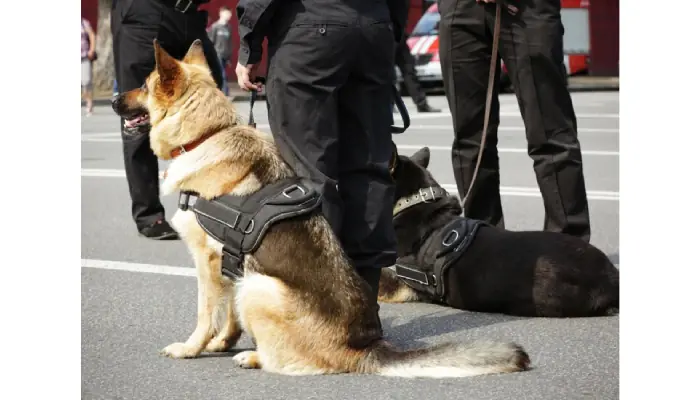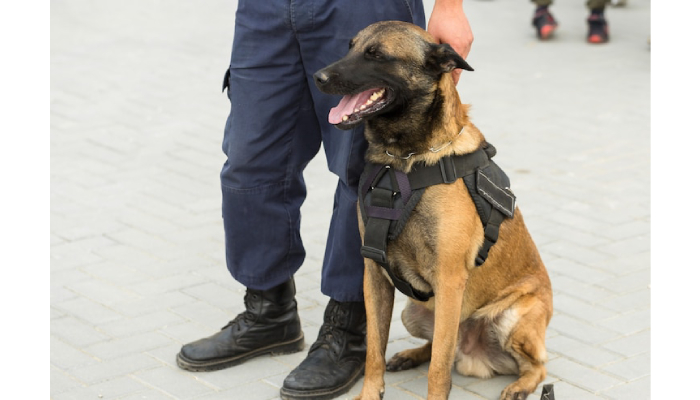
In cases involving police dogs, whether for criminal defense, civil rights litigation, or law enforcement training reviews, the testimony and insights of a Police K9 expert witness play a pivotal role. These experts are uniquely qualified to evaluate the actions of K9 handlers, the behavior of the dogs, and the protocols employed during an incident. One of the most critical aspects they assess is how an officer handles and controls their police canine during various operations, including suspect apprehension, crowd control, and narcotics searches.
In this article, we explore how a Police K9 expert witness conducts these assessments, what criteria they use, and why their evaluations are crucial in legal proceedings and departmental policy reviews.
The Role of a Police K9 Expert Witness
A Police K9 expert witness is typically a professional with extensive experience in training, handling, and deploying police dogs in the field. Many are retired law enforcement officers, K9 trainers, or behavioral specialists who understand both legal standards and best practices in canine policing.
In litigation, their role is to offer an impartial, evidence-based opinion on whether the handler’s use of the K9 was reasonable, justified, and compliant with industry standards. This often includes assessing video footage, handler training records, departmental policies, and witness testimonies.

Key Areas of Assessment in Officer Handling and Control
1. Command and Control Techniques
The cornerstone of any police K9 unit is the handler’s ability to control the dog with verbal commands, hand signals, and leash techniques. A Police K9 expert witness evaluates whether the officer:
- Used proper command sequences consistent with the dog’s training.
- Issued commands in a timely and clear manner.
- Gave the dog appropriate opportunities to comply.
- Was able to recall the dog immediately after engagement.
Poor command and control can indicate inadequate training or negligence, which can be central to cases involving excessive force or accidental bites.
2. Handler Training and Certification
K9 units must undergo regular and rigorous training to ensure readiness and legal compliance. A Police K9 expert witness will examine:
- Whether the handler and dog were certified by a reputable organization (e.g., USPCA, NAPWDA).
- If the officer received sufficient training in scenario-based deployments.
- How often recertification and ongoing evaluations occurred.
- Any discrepancies between training protocol and field behavior.
If an officer deployed a dog without adequate training or violated departmental guidelines, the expert witness can highlight this lapse as a contributing factor to the incident.
3. Justification of Deployment
Was the use of the K9 warranted under the circumstances? An expert witness will review the reason the officer decided to deploy the dog, which might include:
- Locating a hidden suspect.
- Controlling a non-compliant subject.
- Detecting narcotics or explosives.
They analyze whether less aggressive means could have been used, or if the dog’s involvement escalated the situation unnecessarily. This is often pivotal in excessive force claims.
4. Bite Ratio and Engagement Protocol
One of the most scrutinized aspects of K9 use is whether the dog bit the suspect and whether that bite was justified and properly controlled.
A Police K9 expert witness will assess:
- Whether the handler gave a clear warning before releasing the dog.
- The length of time the dog maintained the bite.
- Whether the handler intervened promptly to end the engagement.
- If the engagement was proportionate to the threat posed.
Excessive or prolonged biting, especially without adequate warning or justification, can suggest misuse of the canine and may form the basis for civil liability.
5. Use of Force Policy Compliance
Every law enforcement agency has a use-of-force policy, which includes specific guidelines for K9 deployment. Expert witnesses compare the officer’s actions against:
- Departmental policies and procedures.
- Federal and state laws governing use of force.
- Accepted standards from policing organizations.
If the officer deviated from these standards without a reasonable justification, it strengthens arguments of misconduct or lack of control.
6. Behavior and Responsiveness of the Dog
Interestingly, the behavior of the dog itself can be revealing. A Police K9 expert witness is trained to interpret canine body language and determine:
- Whether the dog was following commands or acting independently.
- If the dog appeared overly aggressive or out of control.
- Whether the dog was showing signs of stress, confusion, or fatigue.
- If the dog had a history of problematic behavior or prior complaints.
A well-trained dog will respond to its handler consistently. If a dog appears to act unpredictably, the expert will examine whether this was due to poor training, ineffective handler commands, or both.
Importance in Legal Proceedings
The assessment of a Police K9 expert witness is often a turning point in both criminal and civil cases. Their evaluations can help determine:
- Whether evidence obtained during a search should be suppressed due to unlawful deployment.
- If a bite injury was the result of excessive force.
- Whether a department’s training practices are adequate or negligent.
Their testimony brings clarity to complex events, offering judges and juries a professional interpretation of technical standards in law enforcement canine deployment.
Preventative and Training Applications
Beyond the courtroom, the insights of a Police K9 expert witness are instrumental in shaping training programs and preventing future incidents. Law enforcement agencies often hire these experts to:
- Audit their K9 programs.
- Provide third-party evaluations of handler performance.
- Recommend changes to policies and procedures.
- Offer expert guidance in high-liability deployments (e.g., schools, public events).
By proactively engaging expert witnesses, departments can reduce liability and ensure their K9 units perform ethically and effectively.
Conclusion
Assessing officer handling and control of police dogs requires a nuanced understanding of law enforcement procedures, canine behavior, and legal standards. A qualified Police K9 expert witness plays a crucial role in determining whether handlers exercised appropriate command, followed established protocols, and used their K9s within the bounds of the law.
Their evaluations not only influence the outcome of legal proceedings but also contribute to improved policing practices, public safety, and accountability. Whether reviewing a bite incident or validating training procedures, these experts are vital in maintaining the delicate balance between public protection and individual rights in the use of police canines.